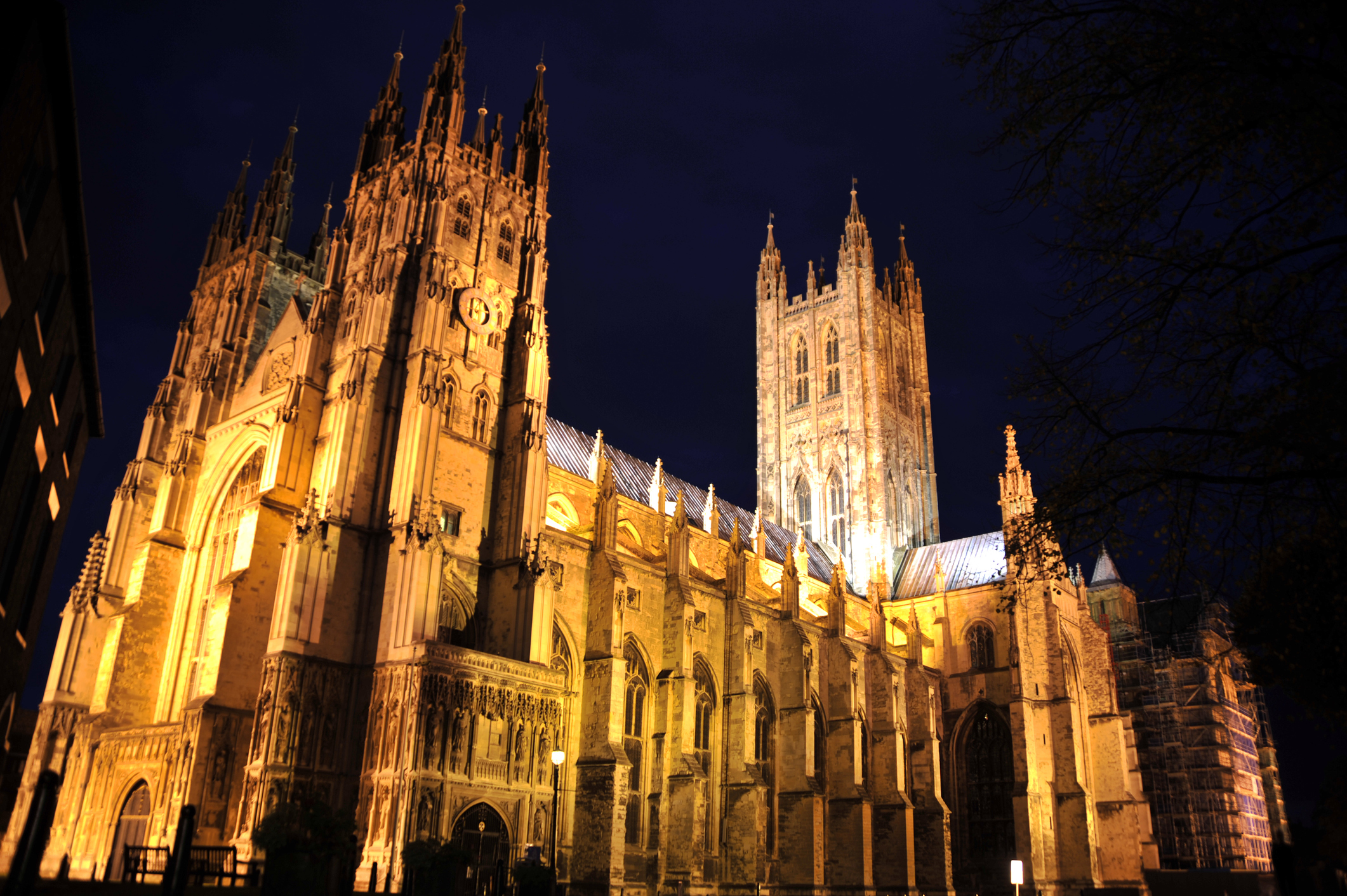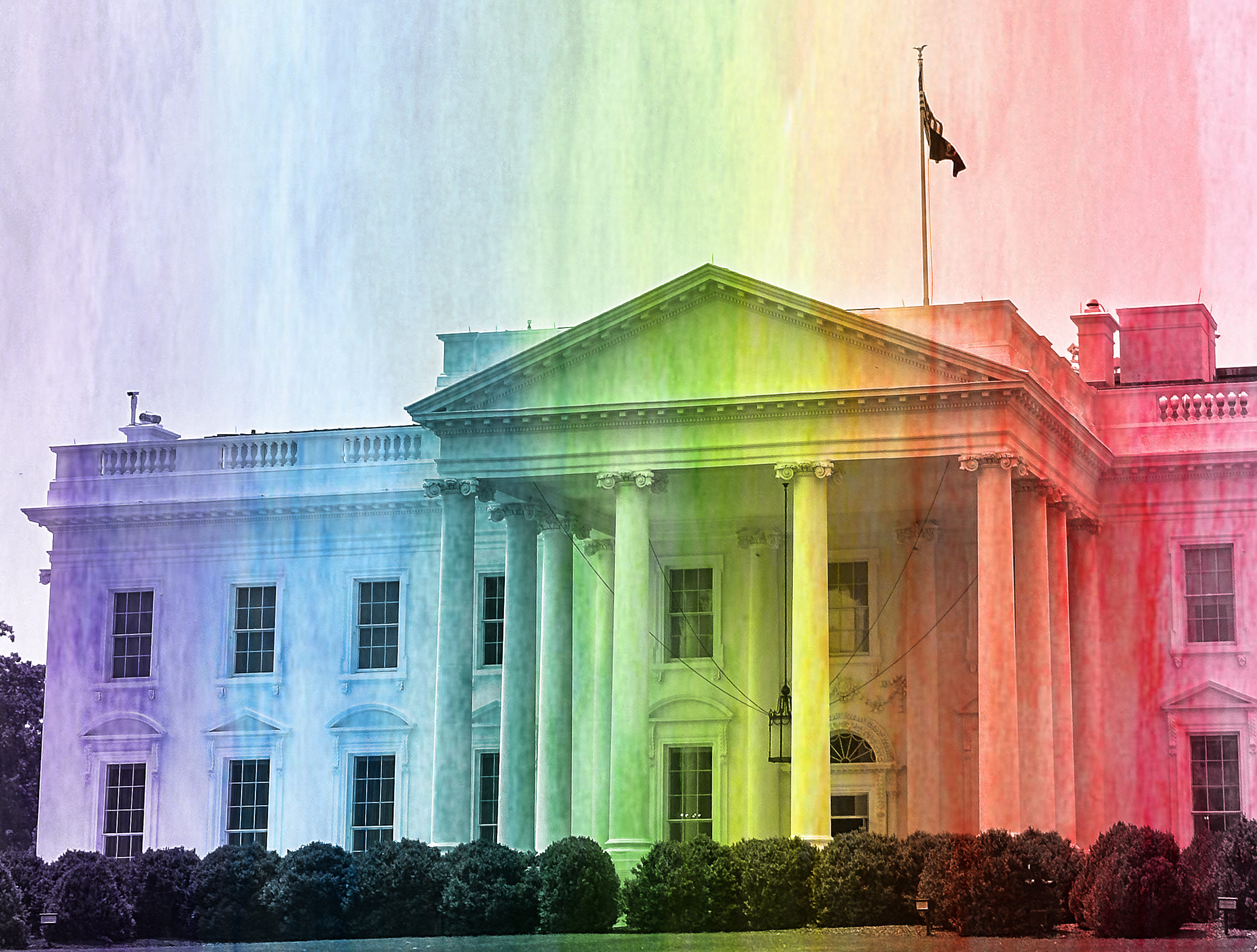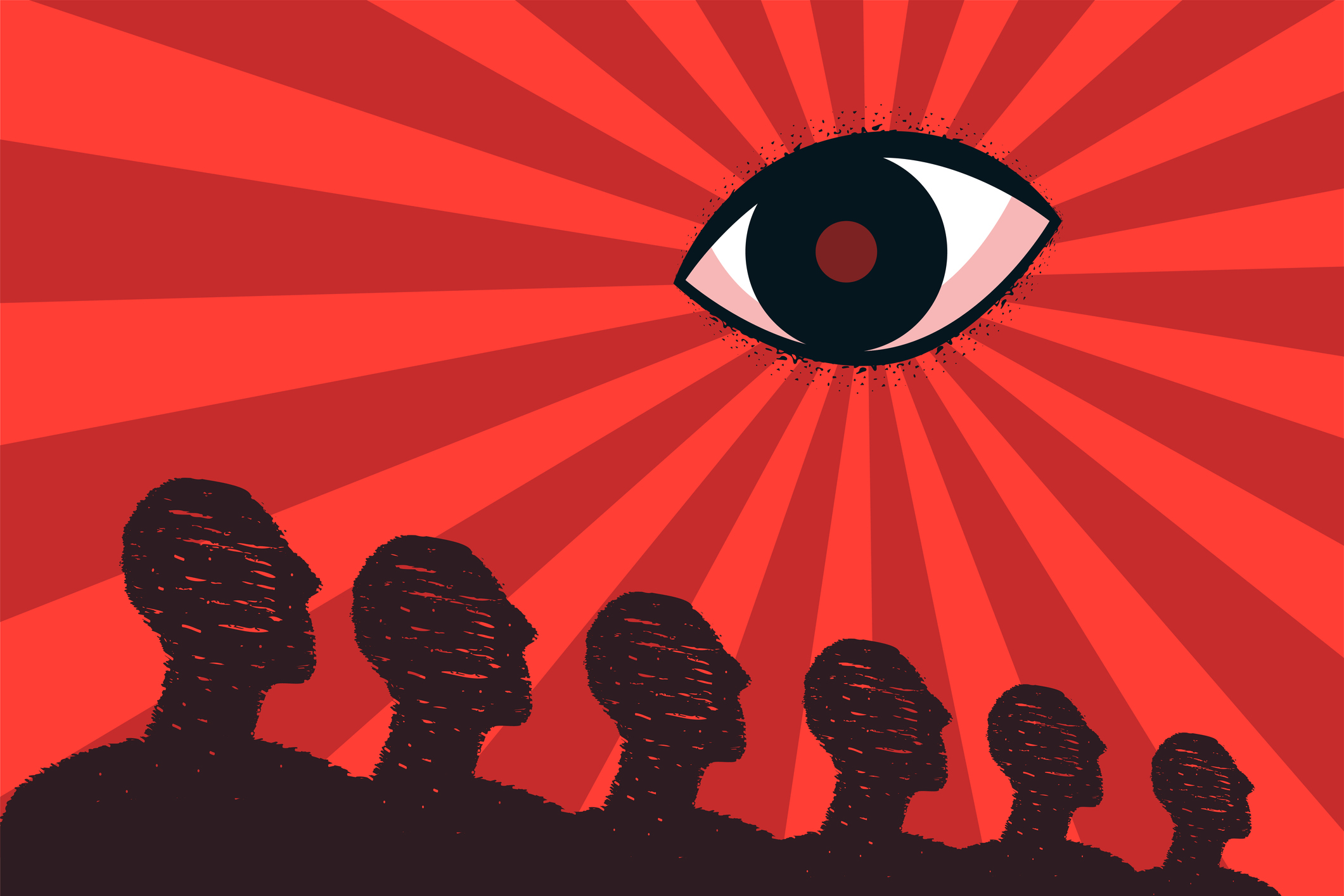The replacement of Easter by this new feast day in the progressive liturgical calendar is a provocation.
A Night at the Canterbury

The post-Christian West is descending into relativism and, ultimately, nihilism.
Earlier this month, there was “a rave in the nave” at the Anglican Cathedral in Canterbury—instead of A Night at the Roxbury, it was A Night at the Canterbury. With the permission of the Very Rev. Dr. David Moneith, over 1,500 people came to the site of St. Thomas Becket’s martyrdom so that they could dance to club hits from the ‘90s. Despite a petition protesting the event and a large crowd of people praying outside of it, the crowd blithely danced to hits from the Spice Girls, Vengaboys, and Britney Spears.
More recently, the Christian-ish campaign He Gets Us ran the commercial “Foot Washing” during the Super Bowl, in which Christian conservative stereotypes washed the feet of woke progressive stereotypes. Even though this ad angered more Christians than inspired non-Christians with a love for Christ, the rationale was the same as it was for the cathedral-turned-discotheque: it will introduce Jesus to an unchurched generation of people who might not know Him.
Welcome the post-Christian West! The fumes of Christianity may linger, but the population at large has moved on to a distinctly different culture. Relativism now predominates in all spheres of life, where one man’s truth is another man’s falsehood, virtues and vices are interchangeable, and physical reality and spirituality are subordinate to virtual reality and mental health.
As one might imagine, the post-Christian West is starting to resemble the pre-Christian West in a number of ways. As sociologist Rodney Stark noted in his re-released classic The Rise of Christianity, Rome before the birth of Christ, and for at least a century afterward, was also a diverse place, filled with activity and fun. It also happened to be relativistic, materialistic, and indifferent to tradition.
Consequently, pre-Christian Rome, like today, had a culture of death where abortions were common, birthrates were low, and sexual license was the norm. Men and especially women were objectified and were frequently reduced to mere laborers, consumers, procreators, and prostitutes. Only the very rich experienced any kind of freedom and commanded authority at this time.
Granted, today’s culture is not quite as dirty, squalid, or violent as first-century Rome. In one of the later chapters of his book, Stark describes the conditions of the typical city in that time. It was incredibly dense, with people living in small quarters; roads were narrow and covered with animal and human feces and sometimes corpses; fires and natural disasters were frequent; water from the aqueducts was contaminated and often undrinkable; disease was ubiquitous; and crime was rampant. The population was periodically revitalized with waves of incoming immigrants who ended up residing in ethnic enclaves. Again, only the rich who could afford to live outside the city enjoyed a living standard comparable to any Westerner today.
A good comparison to the pre-Christian city would be to look at crowded cities in developing countries like Kolkata, Mogadishu, or Gaza. However, it could be argued that some Western cities are headed in this direction, as lax standards, corrupt leadership, and an open border have precipitated some of the same dysfunction. For Westerners rooted in a Christian culture, this looks like obvious decline; for the growing number of neopagan Westerners, this looks like progress.
Fortunately, most of the West hasn’t quite descended to this level of decay (yet), and the vestiges of the Christian mindset continue to hold society intact. But this will change so long as Christianity recedes and a post-Christian paganism (otherwise known as postmodern ideology) rises to take its place.
So where does this leave Christianity now? Considering the level of chaos and dysfunction in the ancient world, it’s understandable how Christians could spread their faith in the Roman Empire, particularly in the cities. On a practical level, Christians offered social services to those in need and elevated the status of men and women, treating them as human beings, not objects. On a spiritual and moral level, their theology was far more coherent and comprehensive than the mystery cults and philosophical schools which either led their adherents into superstition or nihilism.
Yet this doesn’t explain why Christianity seems to be fading now. After all, Christian-based organizations make up many of the largest charities in the world, and Christianity still provides a much better model than rival faiths and philosophies. Why would people today decide to abandon it now?
Although he doesn’t speak to this question directly, Stark discusses a problem all religions need to face in order to grow: spiritual “free riders.” Most people convert to religion because of their spiritual, social, and material benefits, but many of them will want to do so without making any sacrifices. Early Christianity required that believers live apart from the world around them by making prohibitions against idolatry, promiscuity, and selfishness, along with requiring prayer, almsgiving, and fasting. Not only did these prohibitions make Christians stand out in that culture, but it also put them at risk of persecution. They had skin in the game and were not allowed to free ride.
The witness of faithful Christians was a powerful argument for the truth of the Gospel. However, Christian free riders had the opposite effect: they undermined evangelization efforts and weakened the capacity of the church community to do much good. Even if they called themselves “Christians,” they made no sacrifices that would have strengthened their respective communities. This idea finds expression in Acts 5:1-11 when St. Peter fatally rebukes Ananias and Sapphira after they held back their full contribution to the church. In a sense, they were the first free riders; either they died or the nascent Christian church would die.
Today’s Christian churches are full of free riders. In general, little is required of modern Christians, and all aspects of the Christian lifestyle have become optional. Aside from a few small gestures of faith, Christians are indistinguishable from non-Christians. They may receive their sacraments and associate with other Christians, but their outlook and behavior are much more defined by their environment than their religious beliefs. Even when their churches are desecrated, their brothers and sisters in Christ are martyred, or the key tenets of their faith are violated, most Christians tend to carry on as before, never realizing the damage that their complacency does to their religion.
In the midst of the season of Lent, now is the perfect time for Christians to stop this. As with the early Christians, the solution is simple: avoid sin and do more fasting, prayer, and almsgiving and confront Christians who refuse to do these things. These actions resist both the progressive extreme of accepting everyone and everything as well as the traditionalist extreme of hunkering down and excluding all outsiders. Rather, such an approach could reestablish Christianity as a force in the culture by maintaining its structural integrity while allowing for growth.
At this point in time, a half-hearted Christian is worse than a whole-hearted atheist. For those who disagree (and most well-meaning Christians certainly will disagree), they should recognize that a post-Christian West is already happening, and it will soon be just as unpleasant and unfamiliar as its prequel two millennia ago.
The American Mind presents a range of perspectives. Views are writers’ own and do not necessarily represent those of The Claremont Institute.
The American Mind is a publication of the Claremont Institute, a non-profit 501(c)(3) organization, dedicated to restoring the principles of the American Founding to their rightful, preeminent authority in our national life. Interested in supporting our work? Gifts to the Claremont Institute are tax-deductible.
How radical relativism leads to ideological fanaticism.
Conservatism and vampire stories.
Liberal Jews are desperate to maintain the delusion that their major enemies are outside the house.
Young Nietzscheans should look to Tocqueville as a more politically responsible source for a new politics.
Higher education has always been a religious quest.






